- Étienne André Marie Perruchon
- Lamentations
- Nikolai Kaufmann
- Alexander Kok
- Kent Nagano
- Ben Nobuto
- VOCES8
- Aristophanes
 DISCUSSION: John Dante Prevedini leads a discussion about Music and the Visual World, including contributions from Celia Craig, Halida Dinova and Yekaterina Lebedeva.
DISCUSSION: John Dante Prevedini leads a discussion about Music and the Visual World, including contributions from Celia Craig, Halida Dinova and Yekaterina Lebedeva.
 UPDATES: There's a new feature every day at Classical Music Daily. Read about the various ways we can keep in touch with you about what's happening here.
UPDATES: There's a new feature every day at Classical Music Daily. Read about the various ways we can keep in touch with you about what's happening here.
Lolita in Jerusalem
Elena Stikhina in Teatro alla Scala's new production of 'Salome' by Richard Strauss impresses GIUSEPPE PENNISI
After fourteen years, a new production of Salome by Richard Strauss was unveiled at La Scala on 20 February 2021. As matter of fact, this new production was at very advanced rehearsal stage in early March 2020 when La Scala and all other theatres and opera house had to close due to the pandemic. The conductor was scheduled to be Zubin Mehta, who in 1974 had started his collaboration with La Scala with this very title. The new production was shown on 20 February on national TV and is available at Raiplay.
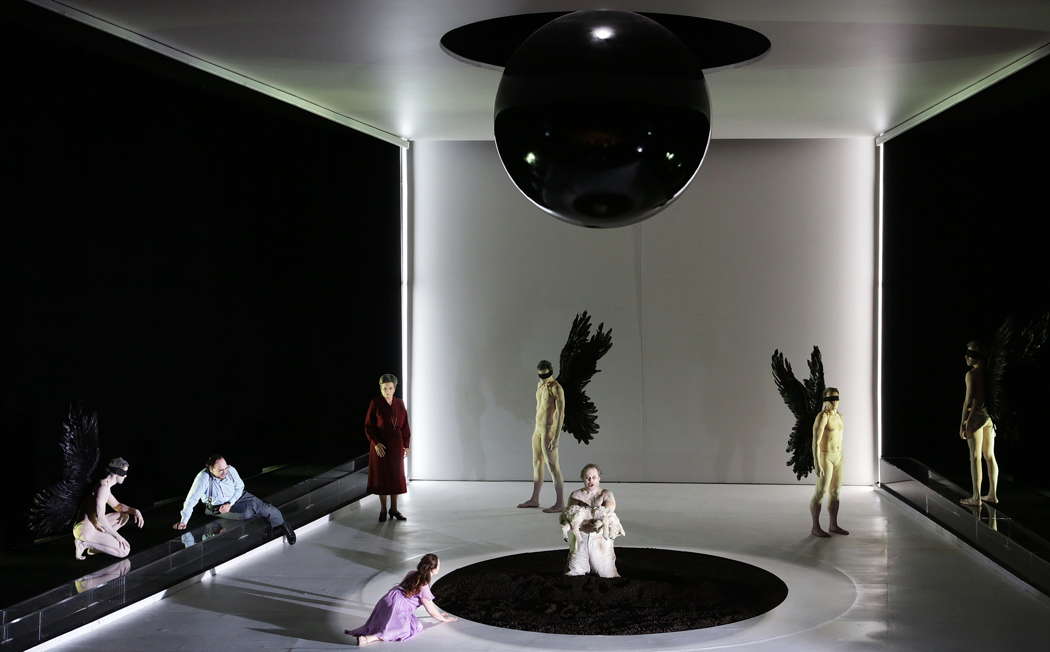
Attilio Glaser as Narraboth, Elena Stikhina as Salome, extras and dancers in the new Teatro alla Scala production of Salome by Richard Strauss. Photo © 2021 Brescia e Amisano
I have a distinct memory of the previous La Scala production in 2007: director Luc Bondy had set the plot in a bourgeois family and the conductor, Daniel Harding, was careful and precise but those who had expected him to extract fireworks from this Strauss score were somewhat disappointed.
In this magazine's predecessor, I reported about productions in Leipzig in 2017: Sex and Blood in Jerusalem, 30 June 2017, and at the 2018 Salzburg Summer Festival: Salome and the Stones, 3 August 2018. Like those productions, this staging avoids falling into either one of these two traps: becoming a decadent twentieth century drama or a 1950s Hollywood peplum.
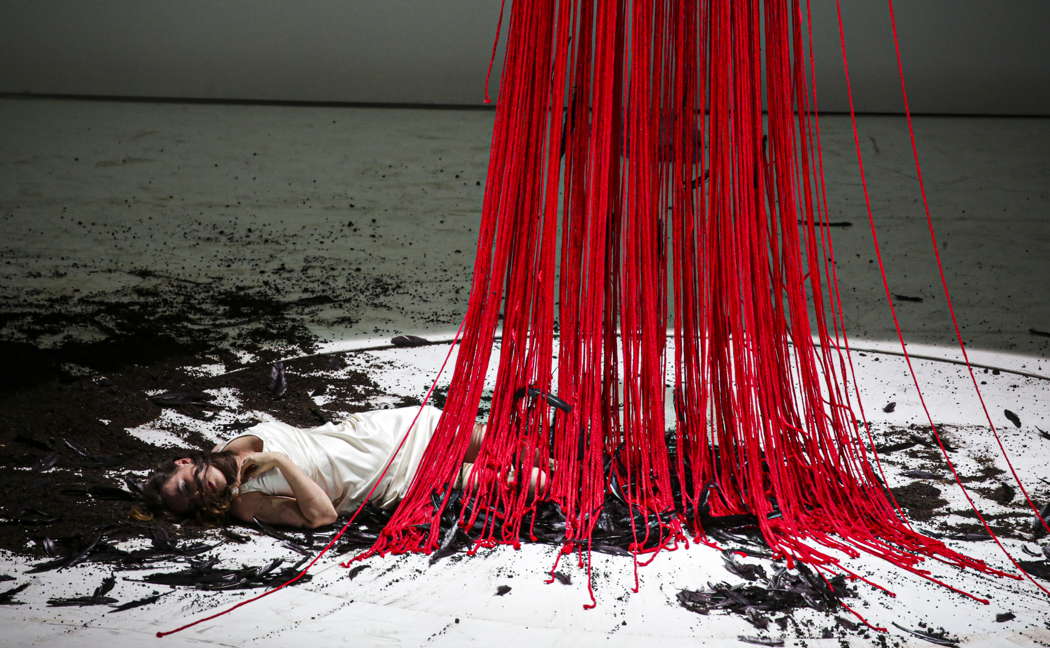
Elena Stikhina in the title role of the new Teatro alla Scala production of Salome by Richard Strauss. Photo © 2021 Brescia e Amisano
Instead, the stage direction (Damiano Michieletto), the sets (Paolo Fantin), costumes (Carla Teti), the lighting (Alessandro Carletti) and choreography (Thomas Wilhem) created a very severe timeless setting where a Freudian tragedy develops: Salome is a young girl who was raped when she was adolescent and reverses her tensions on Jochanaan (interpreted by Wolfgang Koch). The set is abstract and costumes are contemporary. A few naked angels remind us that we are dealing with the Bible. The Dance of the Seven Veils is a recollection of the rape, indeed the nightmare of a gang rape by six men in dinner jackets.
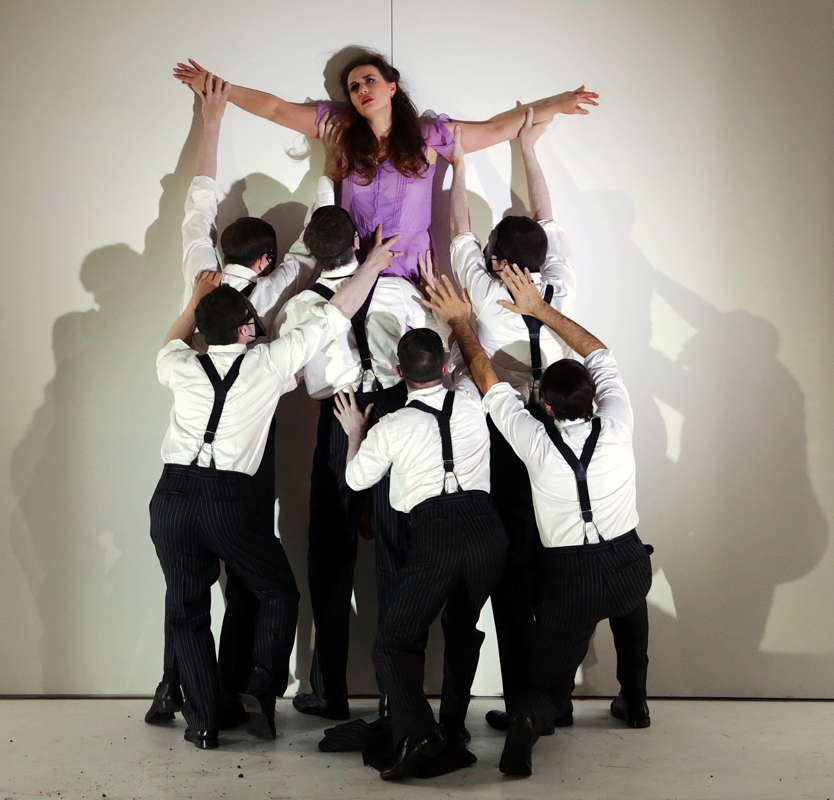
Elena Stikhina as Salome with dancers in the Dance of the Seven Veils from the new Teatro alla Scala production of Salome by Richard Strauss. Photo © 2021 Brescia e Amisano
In this setting, nobody is without sin. Salome (Elena Stikhina) seduces everyone and troubles even Jochanaan. She causes the chief of the Royal Guards, Narraboth (Attilio Glaser) to commit suicide with poison because he is earnestly in love but realizes that she is sexually attracted to the prophet. Herodes (Gerhard Siegel) and Herodias (Linda Watson) are corrupted to the hilt.
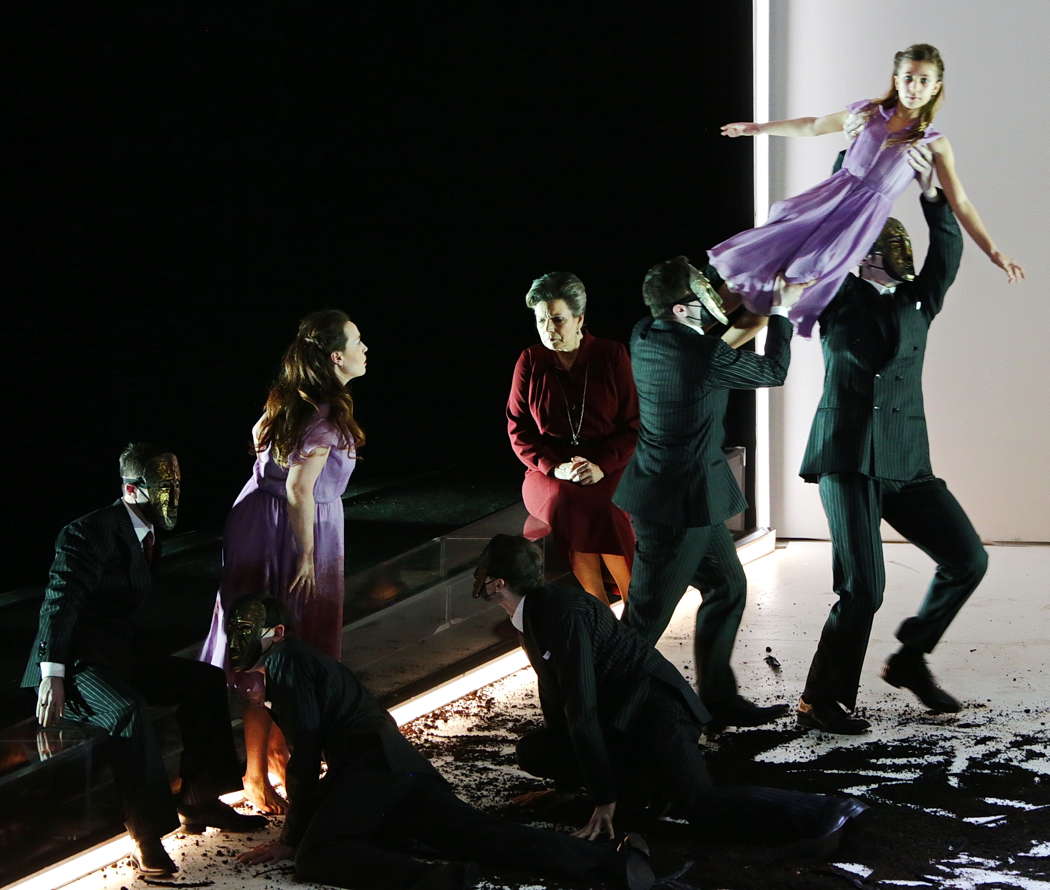
A scene from the new Teatro alla Scala production of Salome by Richard Strauss. Photo © 2021 Brescia e Amisano
The production conceived for 2020 has been modified to take account of the TV potential: the orchestra is not in the pit but with distancing, it occupies almost all the theatre stalls section. The full stage of La Scala is available for the action: this evolves like in a movie. Thus, the tragedy speaks about us as a universal drama about sins without redemption. In the orchestra section, Riccardo Chailly replaced Zubin Mehta (who was sick) and conducted an enormous ensemble consisting entirely of soloists, as Richard Strauss required. The sound was outstanding as well as enthralling. The woodwinds were marvellous. The seven veils dance was sensual and erotic.
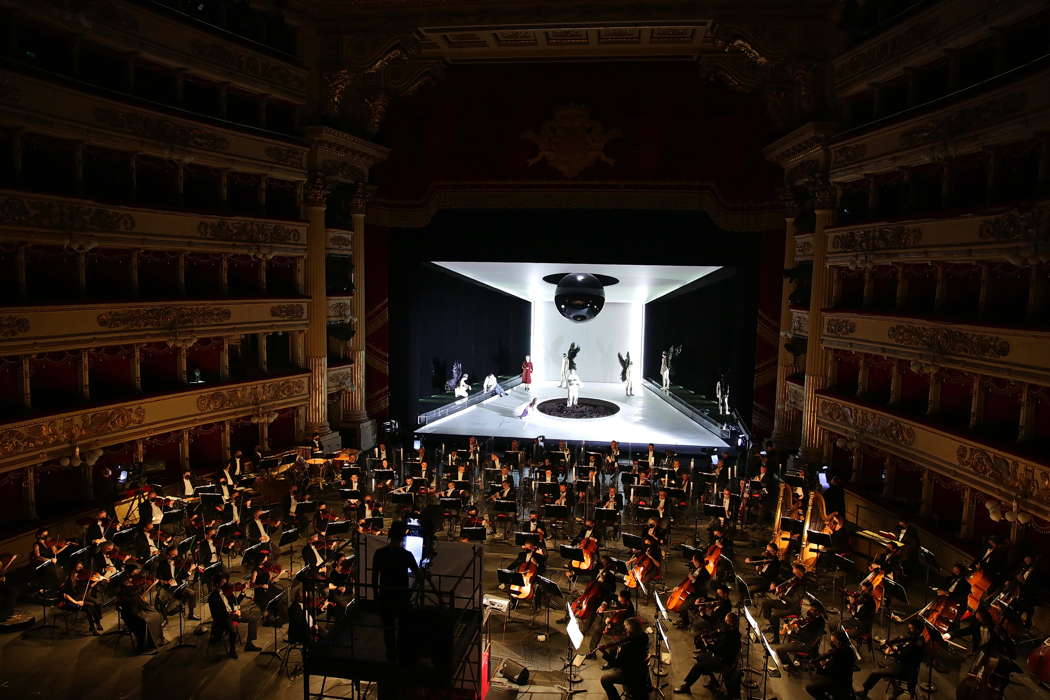
A scene from the new Teatro alla Scala production of Salome by Richard Strauss. Photo © 2021 Brescia e Amisano
The real coup de théâtre was Elena Stikhina, a Russian dramatic soprano known for her performances of Puccini roles - mostly Tosca - and Wagnerian parts, especially at the St Petersburg Mariinsky Theatre. She has a powerful voice and handles the imperious title role very easily. She is also a great actress. Even though she is thirty-four years old, she looks like an adolescent: a devious, perverted and sex-starved Lolita, especially in the final and very bloody scene. She has a strong acute and can keep a C and a F for a while, as required by Strauss, but which is seldom done in live performances.
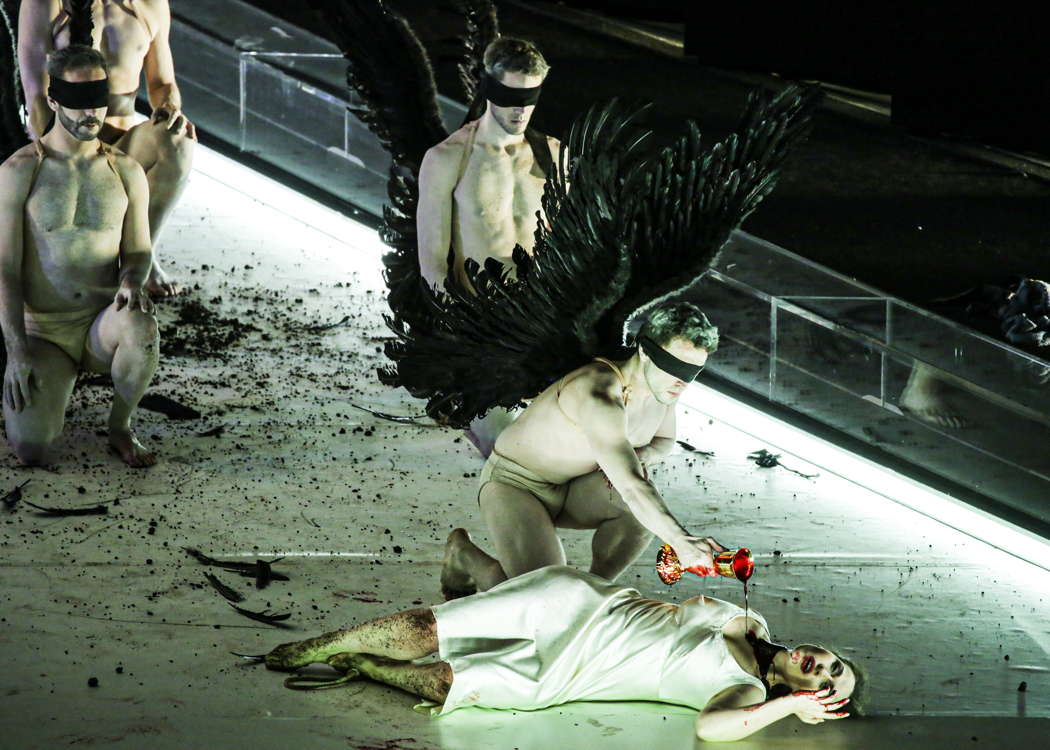
Elena Stikhina and dancers in the final scene of the new Teatro alla Scala production of Salome by Richard Strauss. Photo © 2021 Brescia e Amisano
She stands out above all the others in a good cast. She is the key personality in the four confrontations she has with Jochanaan, Narraboth, Herodes and Herodias. Wolfgang Koch is an impressive very steadfast Jochanaan. Attilio Glaser is a weak, quite tormented Narraboth with a high texture almost fit for a Mozart tenor. Gerhard Siegel is a lustful Herodes who only at the very end of the tragedy understands his weaknesses fully. I was glad to see Linda Watson again on an Italian stage; as Herodias she is lustful but also cold and determined (to have Jochanaan murdered).
I suggest that you connect with www.raiplay.it
Copyright © 22 February 2021
Giuseppe Pennisi,
Rome, Italy

FURTHER ARTICLES ABOUT TEATRO ALLA SCALA
FURTHER LIVE CONCERT AND OPERA REVIEWS


